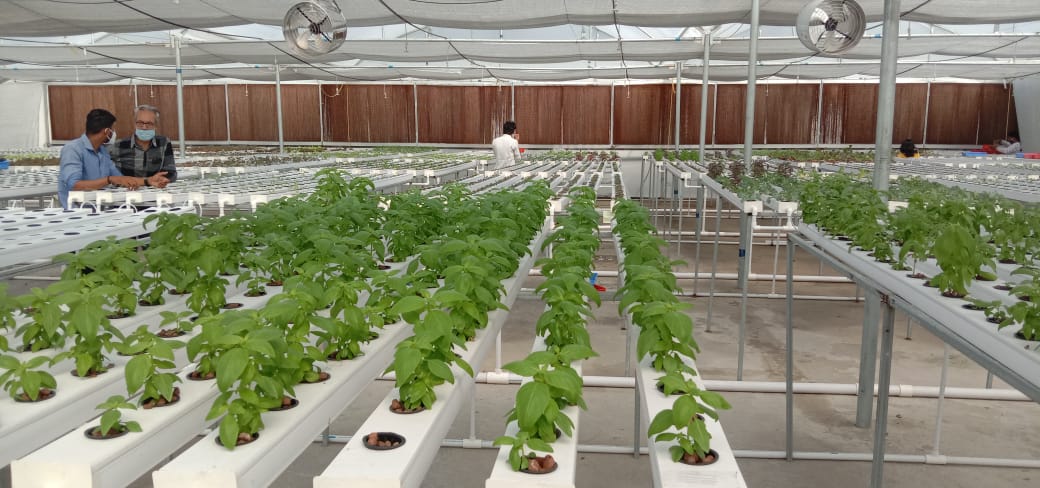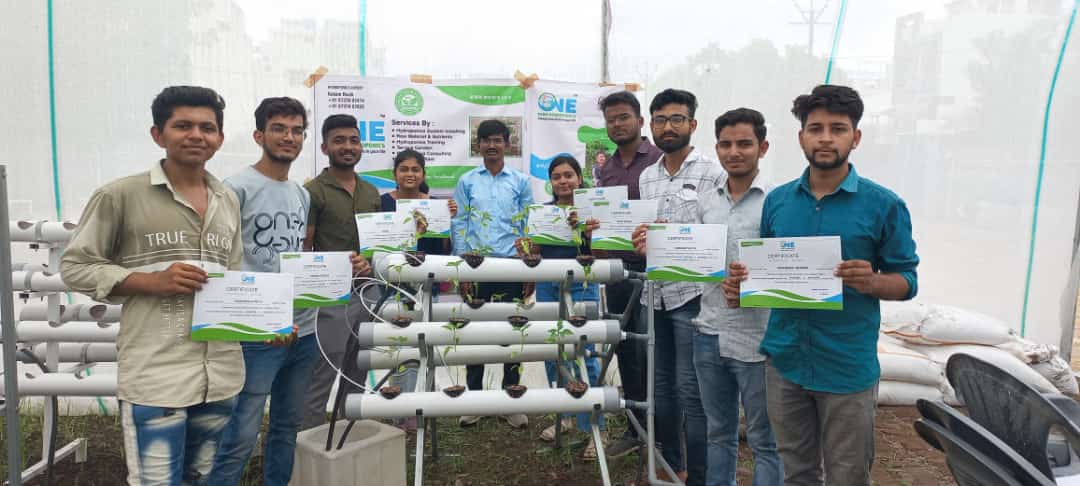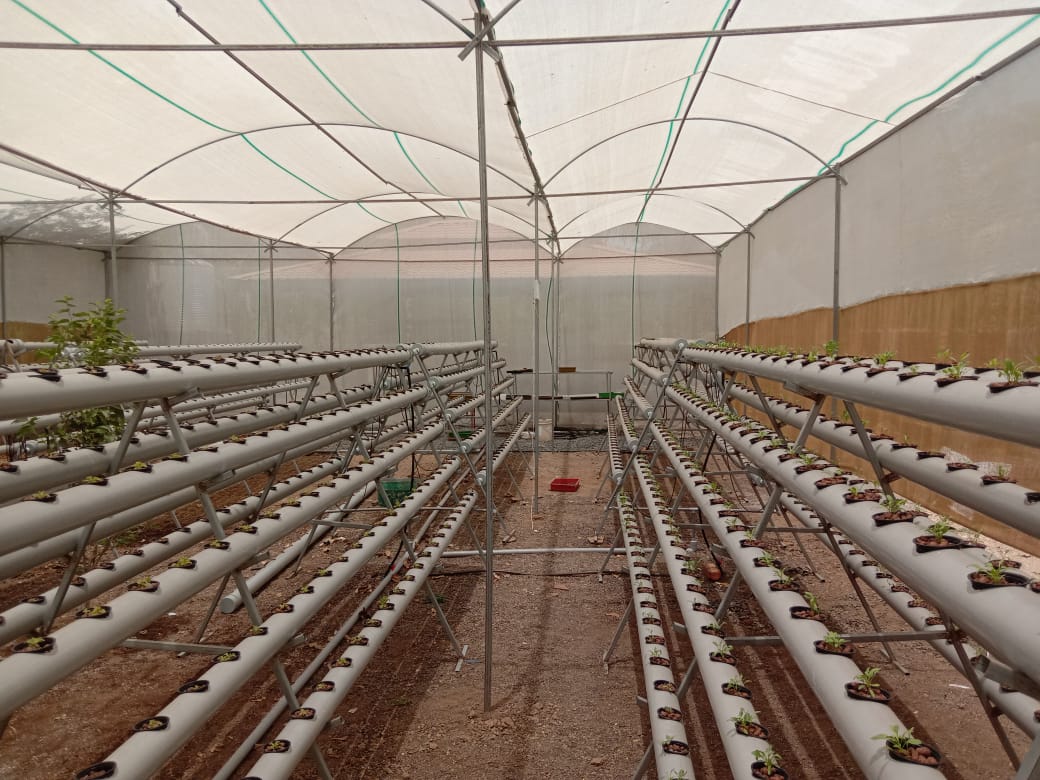Getting a government job is a dream for many. If not for kids, at least their parents wish so for them.
Rasik Nakum’s family had similar ambitions for him as well. He succeeded in getting a job as a government teacher. However, while his family of farmers rejoiced at this news, the Rajkot resident had other plans.
Watching his father and grandfather toil on the fields, the 33-year-old was well aware of the problems they faced. Almost a decade ago, he came across an article in the newspaper which spoke about a pesticide being banned after it caused skin and health issues to farmers.
This article left a deep impact on Rasik, prompting him to delve into the subject and look for solutions. He chanced upon hydroponics, a soilless cultivation technique that uses a water-based nutrient solution.
What struck him about this method besides its innovativeness was the fact that it provided a perfect solution to some of the biggest problems faced in modern agriculture –water scarcity and lack of space. He was so enamoured by this that he took the bold step of quitting his much-coveted government job to embark on a journey which was deemed ‘impractical’ and ‘unnecessary’ by everyone around him.

Rasik has proven the naysayers wrong by establishing a thriving hydroponics farm on his terrace, where he grows over 25 vegetables. That’s not all – the teacher is on a mission to teach this technique to all and sundry. So far, he has equipped over 5,000 people with this farming method through his ‘One Farm Hydroponics’ venture.
His larger vision is to teach hydroponics to everyone for free, through his Maruti Nandan Charitable Trust.
“We are born to serve others. I’ve found my purpose through teaching a better way to grow plants,” Rasik shares with The Better India.
A practical solution to climate change
It was almost a decade ago that Rasik first heard about hydroponics. After reading about the adverse effects of chemical farming, he researched organic and modern farming methods. However, another major issue faced by his family was water scarcity, which rendered traditional organic farming methods ineffective.

“We are staring at a big water crisis in the future and hydroponics vertical farming is a great solution for that. It uses less water and space to provide higher produce,” explains Rasik. This method is a win-win for big city-dwellers.
After almost a year of research, the farmer tried his hand at hydroponic cultivation on his terrace with a modest setup of 50 plants. He visited agricultural universities, spoke to scientists to gain more knowledge about this technique.
Despite all his efforts, he didn’t get the results he desired. The first year was a failure as the crops didn’t grow.
The 33-year-old then went back to the drawing table and checked the mistakes he made.
“There are many important factors like temperature, humidity, pH levels. I had not purchased the instrument to measure the pH and TDS (total dissolved solids) levels,” he adds.
After more trial and error, he finally cracked the perfect conditions and reaped the fruits of his labour right from his terrace.
Today, he grows lettuce, basil, spinach, coriander, chilli, brinjal, strawberries and over 25 other vegetables.
The word hydroponics comes from ‘hydro’ meaning water and ‘ponos’ meaning toil or labour, literally translating to ‘working water’. Interestingly, while hydroponics has gained popularity today, it’s been around since time immemorial; seen even in the Hanging Gardens of Babylon and the floating gardens of the Aztecs in Mexico and more.
Since then, with the advent of technology, greenhouses, scientists have developed some tools and systems to make it effective and efficient.
Rasik uses the method of vertical farming by employing the Nutrient Film Technique (NFT). This technique uses pumps to circulate a thin film of nutrient solution through shallow channels, where plant roots can dip to receive nutrients, according to Pure Greens container farms.
The advantage of this technique, he states, is the usage of less water and space to enhance production.
Save water, no soil to get maximum yield
Once Rasik mastered the art of hydroponics, his terrace drew hundreds of visitors in Rajkot, including scientists. The increased interest also paved the way for awareness programs and his training centre, One Farm Hydroponics.

For the past five years, he has been training students and farmers through various universities in Gujarat and Karnataka. This training is for one month and provides all the necessary information, dos and don’ts which the teacher learnt over his three years of trial and error.
“I want to distribute my knowledge and create awareness that such a technique exists. The beauty is that it requires minimum water. The system consists of PVC pipes which supply nutrient-rich water solution directly to the roots of the plant. This water is then rotated and reused. Plants get nutrition through the water used,” he explains.
Over the past five years, he has trained over 5,000 people. Over time, Rasik felt the need to provide this information to more people for free, and started the Maruti Nandan Charitable Trust.
“I want to conduct a mega city awareness campaign, and reach more people. It’s essential that people learn this technique that doesn’t need acres of land, saves water and needs no soil. I’ve always wanted to serve people, and this is my path,” says Rasik.
With a limited availability of arable land, hydroponics is a great option to fulfil the demand for vegetables judiciously.
You can support Rasik’s mission to promote a sustainable alternative to traditional farming by contributing to the Maruti Nandan Charitable Trust.
A/c Number: 41803167622
IFSC code: SBIN0011001
But is his family happy now? “They still think I shouldn’t have quit my job,” laughs Rasik, as he heads off to teach another batch of students the farming technique of the future.
Edited by Padmashree Pande
No comments:
Post a Comment